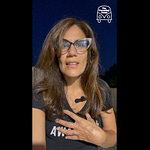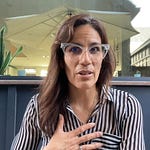It is approximately 10:45 pm, you are tired from a full day of working, juggling pick ups and drop offs, perhaps even doing a last minute grocery run, and most definitely tired of repeating yourself to your kids. You snap. You wish you didn’t but you do. You raise your voice, threaten your children, or maybe even punish them for not listening. Inevitably, once the strong emotions are gone and you are the last one up making sure the lights are off and the doors are locked, a sense of guilt enters your body and mind. You may even say to yourself “Damn it, I did it again! I said I was not going to snap anymore and there I was, doing it again!” or “Why couldn’t you just stay quiet and kinder?”
Whilst it is normal to react (read my post on response) it is also normal to feel guilty about your reactions. These reactions are typically fueled by charged and unattended emotions we have yet to process. And here is where the most important choice comes in. We have two possible paths to follow: REMAIN or CHANGE.
If you ask google “What do parents feel most guilty about?” its AI will answer you:
Snapping or loosing my patience with my kids. Not playing enough with my children. Not being home enough. Letting my children have too much screen time. When I don't feel like I'm being a good role model.
I would like to reframe how we, parents, typically perceive feeling guilty. From complaisance to growth via exploring these important questions: What is underneath my feeling of guilt? Is it rooted in reality or in my perception and my own patterns? Is it real? Does it generate action or perpetuate negative inaction? Do I feel like a victim of situations? What type of behaviours does feeling guilty evoque in me? How do I show up when I feel guilty? (I make crepes for my kids the next morning, as an example)
All situations that “set us up” to react and ultimately feel guilty, are the biggest opportunities for us to learn more about ourselves, our inner lack, and our triggers. Most people go through life being triggered and taking a position of the victim. Meaning, they view the situations that trigger them as the external causes or reasons why they act in certain ways. This means they are choosing to REMAIN. And then some people leverage the feeling of guilt to explore deeper what shows up in them when moments take them into places they do not like to be in. When they happens they are choosing ownership and accountability which means they are choosing CHANGE.
My friend, Ariana Hall, recently reminded me of the Drama Triangle. A great model to keep in mind when getting to know ourselves and become more conscious about how we are showing up as parents.
The Drama Triangle, initially introduced by psychiatrist Stephen B. Karpman during the 1960s, presents a "social model of human interaction" aimed at demonstrating unproductive patterns of relating and problem-solving when conflicts arise. Essentially, individuals have a tendency to adopt one of three roles that align with their interests and personalities. Moreover, people can swiftly transition to a different role when it offers them power, rationalizes problems, or enhances their self-perception. And self-guilt can play a significant role in perpetuating the dysfunctional dynamics of the drama triangle.
While our natural tendency is to search for drama we are very capable of intentionally stepping away from the Drama Triangle. David Emerald, an executive coach, author, and keynote speaker, created the Empowerment Dynamic (TED), also known as the Empowerment Triangle, as a positive alternative to the Drama Triangle.
From Understanding The Drama Triangle - What It Is & How You Can Escape It
My wish for you is to become curious about the guilt you feel, especially as a parent, and get to know yourself better so you can prevent, own, and grow.











